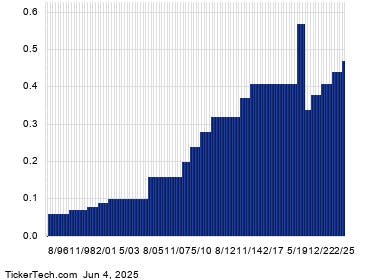Trevor Williams/Getty Images
Choosing an online broker may seem daunting when faced with dozens of reputable financial firms vying for your business. But focusing on a few key factors — such as costs, account types, customer service options and available tools — can help you quickly narrow down your choices and identify the best broker for your needs.
We’ll take you through the important areas to consider when selecting a broker. We rate all of these factors and more in Bankrate’s broker reviews, which offer in-depth analysis of the pros and cons of each platform for different levels of investors.
Types of online brokerages: Which is best for you?
When you decide to invest online, you’ll have a few different ways of getting the job done. Here are a few types of online brokers.
Discount broker
This is probably what you think of when you imagine an online broker. Discount brokers are great for do-it-yourself investors looking for low-cost ways to trade and invest.
There’s no shortage of options when it comes to discount brokers, but Charles Schwab, Robinhood and E-Trade are some of the most popular. These brokers allow you to purchase securities, such as stocks and ETFs, with no commissions and typically have low or no account minimums.
If you’re just starting out, Fidelity is a great broker for beginners. It won Bankrate’s 2025 award as the best broker overall and for beginners based on its low trading costs and account fees, along with its wide offering of research, educational content and strong customer support.
Robo-advisors
Robo-advisors — or automated portfolio management services — are a popular choice for those looking for a simple way to develop an investment portfolio at a lower cost than what traditional financial advisors charge.
Robo-advisors like Wealthfront and Betterment build an investment portfolio for you based on your answers to a handful of questions about your goals, time horizon and risk tolerance. They offer features such as automatic rebalancing and tax-loss harvesting, which can help reduce your taxes in individual and joint taxable accounts. Check out Bankrate’s reviews of robo-advisors to help determine the best one for you.
Micro-investing
If you’re just starting out with investing and don’t have much in the way of savings, then micro-investing could be for you. You only need a few dollars to get started, and you can consistently contribute your savings over time to help build a portfolio.
Personal finance apps like Acorns and Stash allow you to round up purchases you make on a connected debit card to the nearest dollar and invest the additional amount in ETFs and fractional shares of stock. While you’ll likely need to increase your savings beyond a few dollars each month to reach your retirement goals, micro-investing can be a great way to get started early.
Considerations when deciding on an online broker
- Commissions and fees
-
Almost all online brokers offer commission-free trading on stocks and ETFs, but you could pay commissions if you are interested in buying or selling options, investing in crypto or investing in certain mutual funds or buying bonds. Consider the types of assets you’re most likely to invest in and make sure you select a broker with low commissions in that area. Also keep in mind that if you opt for a broker’s robo-advisor offering, you’ll be charged an annual management fee, typically 0.25 percent to 0.50 percent of your assets.
- Account types
-
You’ll also want to pay attention to the types of accounts each broker offers. Individual taxable accounts are a brokerage standard. (Just remember that you’ll pay taxes on capital gains and dividends earned in this type of account.)
Most online brokers also offer retirement accounts such as traditional or Roth IRAs, which are popular investment vehicles for many people. However, specific tax-advantaged accounts like SEP IRAs and solo 401(k) plans aren’t as widely available. The same is true of custodial investment accounts, so consider your needs when shopping around.
- Account minimums
-
Most online brokers have very low or no account minimums, but if you opt to go with a robo-advisor, you could see account minimums of $5,000 or higher, and different thresholds for premium services like tax-loss harvesting and access to one-on-one financial advice from a certified financial planner. Make sure you can meet the account requirements before opening an account with a broker.
- Reliability
-
During times of extreme market volatility, some brokers have had problems with their platforms going down. Outages are never good, but they can be especially frustrating during times of market stress. Check to see if the brokers you’re considering have a history of technical problems during times of heightened activity. If you expect to be an active trader, this could be a red flag.
- Tools and other features
-
Brokers can offer a lot more than simply trading services. Consider the depth and availability of educational resources (which can be particularly useful for those new to investing), research, screening tools, trading simulators and other tools to help you manage your money. Many brokers have started offering fractional shares, which allow investors to purchase a small slice of a company’s stock — as little as $1 at a time.
- Customer support
-
No one likes having to reach out to customer support for help with a problem, but when you need to, it’s nice to be able to get a hold of someone quickly. Some online brokers offer support through the phone or online chat for much of the day, while others are harder to get in touch with. Some of the newer online brokers have received complaints related to customer service, so be sure to understand how you can get help with your account when choosing a broker. (Our broker reviews include details about each provider’s customer support availability.)
Advantages of working with an online broker
One of the biggest benefits of working with an online broker is that you’ll likely avoid paying any commissions on transactions involving stocks or exchange-traded funds (ETFs). Some brokers even offer commission-free options trading.
Online brokers also typically have low or no account minimums, so you can open an account with just a few dollars. This is an advantage over full-service brokers, who typically only work with well-off clients and charge commissions for basic trades. While you might get investment recommendations or additional services from a full-service broker, online brokers come with a significant cost advantage.
Bottom line
Choosing an online broker is a key first step toward investing. To ensure a long and prosperous partnership, take a little time upfront to identify your priorities and find the broker that best serves your current and future needs.
— Bankrate’s Dayana Yochim contributed to an update of this article.
Read the full article here
















